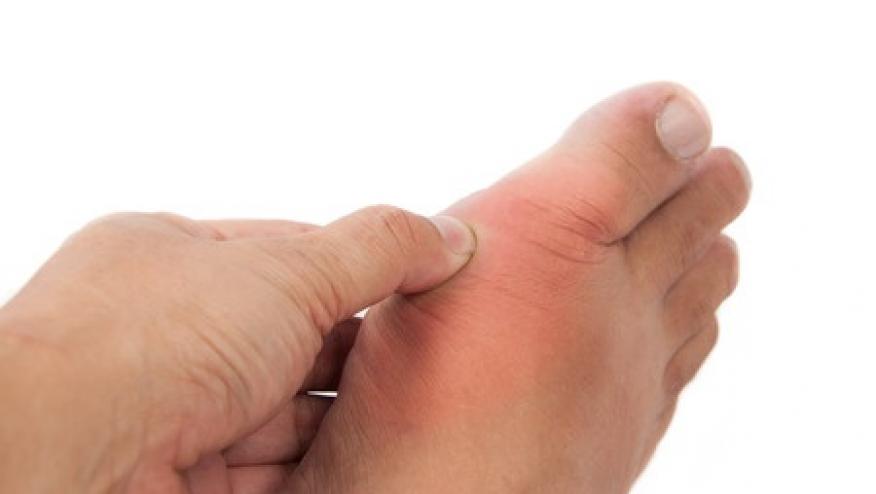Gout - Hot Topics in March 2023 Save

A number of new reports this month shed new light on old issues in Gout.
- Metabolic Syndrome and Gout Risk: A Taiwan nationwide, population-based cohort study of 20–39-year-old men compared those without gout (n=1.2 million) to those with gout (n=18,473). The incidence rate of gout was 3.36 per 1,000 person-years. Those with chronic metabolic syndrome had a nearly 4-fold higher risk of incident gout (adjusted HR 3.82 [95% confidence interval (95% CI) 3.67–3.98]). Developing metabolic syndrome more than doubled the risk of incident gout (HR 2.31) and recovery from metabolic syndrome reduced the gout risk by nearly half (HR 0.52).
- Colchicine and CV risk: Systematic review of 4 observational studies (10,026 gout patients) looked at the effects of colchicine. While Colchicine was use significantly lowered the all-cause mortality risk (RR 0.58; 95% CI 0.43-0.79), there was no difference if the risk of myocardial infarction (RR 0.71; 0.36-1.39), need for PCI, or CABG, between patients on colchicine and those not receiving colchicine.
- Cause-Specific Mortality in Gout: A Veterans Administratgion matched cohort study compared Gout (n = 559,243) and matched non-gout controls (n = 5,428,760) - demonstrating gout patients had an increased risk of death (HR 1.09; 1.08–1.09), which disappeared afer adjusting for comorbidities (HR 0.98). Gout was most strongly associated mortality related to genitourinary conditions (HR 1.50 [95% CI 1.47–1.54]), but had a lower mortality risk with neurologic (e.g., Alzheimer's disease and Parkinson's disease) (HR 0.63 [95% CI 0.62–0.65]) and mental health (HR 0.66 [95% CI 0.65–0.68]) conditions.
ADD THE FIRST COMMENT
Disclosures
The author has no conflicts of interest to disclose related to this subject










If you are a health practitioner, you may Login/Register to comment.
Due to the nature of these comment forums, only health practitioners are allowed to comment at this time.